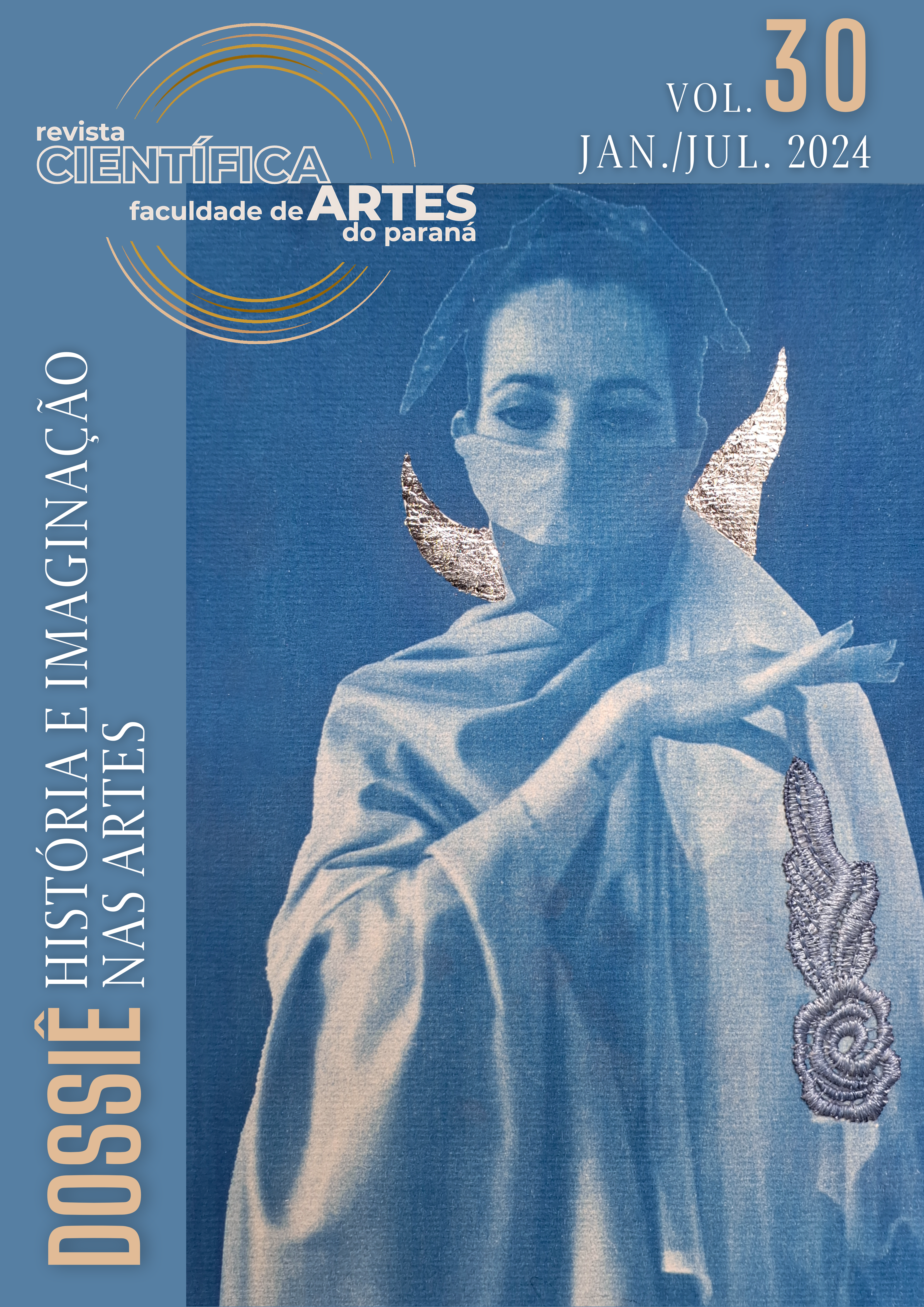Thinking about the present, reinvent the past
The Italian communism as seen by Nanni Moretti
DOI:
https://doi.org/10.33871/19805071.2024.30.1.8903Keywords:
Nanni Moretti, Film Analysis, Reflexivity, Narrativity, Italian Communist PartyAbstract
"What does it mean to be a communist?" is the question that Nanni Moretti attempts to answer in some of his films. With some variations, it is repeated in La sconfitta (1973) and Palombella rossa (1989), and is implicit in La cosa (1990) and Il sol dell'avvenire (2023). The effort to answer it is not uniform and is full of interruptions and discontinuities, alternating between a documentary register that seems to minimize the interference of the filmmaker, and a fictional register elaborated from recognizable elements of the present and a retrospective gaze that highlights the rememorative and speculative role of cinema in constructing an invented past or a possible future. What if the past had been different? The aim of this article is to reflect, through studies on narrativity, on excerpts from the mentioned films of the producer, director, and actor. The methodological procedure of film analysis provides clues about how Moretti's cinema uses different materials and styles to think about the present, remember the past, and fabulate a future in the face of crises and adversities. In this article, the focus will be especially on the work involving the insertion of Moretti's film within Moretti's film.
Downloads
References
ANILE, Alberto. “Tutto cominciò com una Sconfitta”. Bianco e Nero. Roma: Edizioni del Centro Sperimentale di Cinematografia, 2023. Ano 84, n. 606, maio-ago. 2023.
AUMONT, Jacques; MARIE, Michel. A análise do filme. Rio de Janeiro: Texto & Grafia, 2011.
BENJAMIN, Walter: "A Imagem de Proust". Magia e técnica, arte e política: Ensaios sobre literatura e história da cultura. Obras Escolhidas, v. 1. São Paulo: Brasiliense, 1987.
BRUNETTA, Gian Piero. Guida alla storia del cinema italiano – 1905-2003. Roma: Einaudi, 2014.
BRUNETTA, Gian Piero. Il cinema italiano contemporaneo. Da “La dolce vita” a “Centochiodi”. Bari: Laterza, 2007.
CRESPI, Alberto. “Pre-social, pre-Twitter, pre-tutto: ritorno alla politica che fu”. Bianco e Nero. Roma: Edizioni del Centro Sperimentale di Cinematografia, 2023. Ano 84, n. 606, maio-ago. 2023.
______. “L’Unità e il film di Moretti: e se invece la storia si facesse proprio con i ‘se’?”. Striscia rossa. 20 abr. 2023. Disponível em: <https://www.strisciarossa.it/lunita-e-il-film-di-moretti-e-se-invece-la-storia-si-facesse-proprio-con-i-se/>. Acesso em 25 fev. 2024.
FILMSTUDIO. "Il viaggio del Filmstudio dal 1967 a oggi". Disponível em:
<https://www.romafilmstudio.it/il-filmstudio/>. Acesso em: 3 mar. 2023.
GAUDREAULT, André e JOST, François. A narrativa cinematográfica. Brasília: Editora da Universidade de Brasília, 2009.
GENETTE, Gerárd. Figuras III. São Paulo: Estação Liberdade, 2017.
GILI, Jean A. Nanni Moretti. Roma: Gremese Editore, 2006.
GINSBORG, Paul. Italy and Its Discontents. Family, Civil Society, State 1980-2001. Londres: Palgrave Macmillan, 2003.
PATERNÒ, Cristiana. “Il 1989, il Pci, i ‘se’ dela storia. E se Lara si voltasse e vedesse il dottor Zivago?”. Bianco e Nero. Roma: Edizioni del Centro Sperimentale di Cinematografia, 2023. Ano 84, n. 606, maio-ago. 2023.
RANCIÈRE, Jacques. “A historicidade do cinema”. Significação, São Paulo, v. 44, n. 48, jul-dez. 2017, p. 245-263.
SELIGMANN-SILVA, Marcio. “Toda política é política das imagens”. In: KAMINSKI, Rosane; HONESKO, Vinícius; CEREZA, Luiz Carlos (Orgs.). Artes e violências. São Paulo: Intermeios, 2020.
WOLF, Werner. "Metareference across Media: The Concept, its Transmedial Potentials and Problems, Main Forms and Functions". In: WOLF, Werner (Org.) Metareference across Media - Theory and Case Studies. Amsterdam: Rodopi, 2009.
Downloads
Published
How to Cite
Issue
Section
License
The authors retain the copyright, when licensing their production in Revista Científica/FAP, which is licensed under a Creative Commons license. When submitting the article, and upon acceptance, the author assigns his copyright for publication in that journal.
Readers can download, print and use the articles published in the journal, as long as there is always an explicit mention of the author (s) and the Revista Científica/FAP, no changes to the original work are allowed. When submitting an article to Revista Científica/FAP and after its being accepted for publication, the authors allow, without remuneration, to pass the following rights to the Journal: the first edition rights and the authorization for the editorial team to transfer, according to their judgment, this article and its metadata to indexing and reference services.


